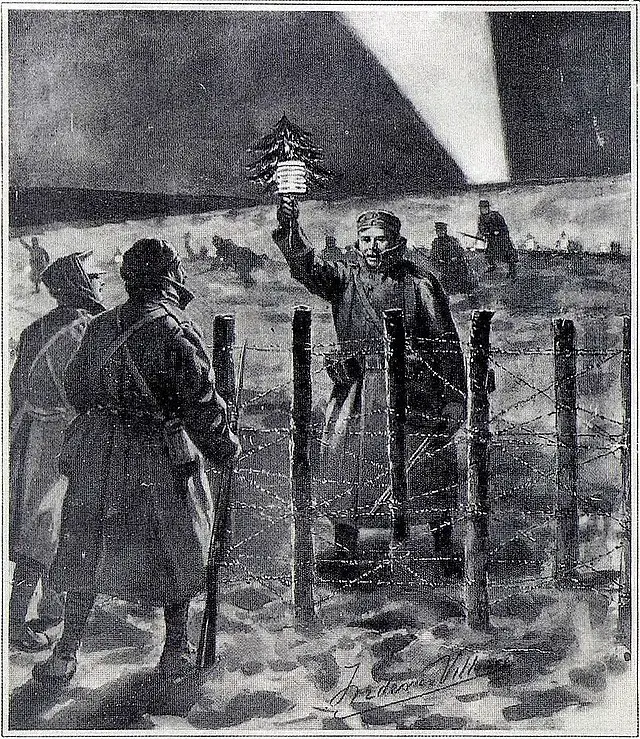Imagine the icy mud of a World War I trench—cold, wet, and filled with dread. Soldiers huddle together, clutching rifles as the sharp scent of gunpowder lingers. The earth trembles from artillery fire, and death is a constant companion. But on one extraordinary night in December 1914, the violence paused. Across the Western Front, British and German soldiers laid down their weapons and stepped into No Man’s Land—not to fight, but to celebrate.
The Impossible Peace
The Christmas Truce wasn’t planned. It wasn’t a ceasefire ordered by commanders or diplomats. It began with simple gestures: a carol drifting through the chill, a flicker of candlelight, and voices joining across the trenches. “Stille Nacht, heilige Nacht…” The haunting melody of “Silent Night” bridged the divide, drawing curious soldiers closer. A hesitant call rang out from the German side: “You no shoot, we no shoot!”
The hesitant men emerged from muddy trenches, hands raised cautiously. Then, a Christmas miracle—enemies shaking hands, exchanging gifts of tobacco, chocolate, and biscuits. The horror of war melted away, if only briefly.

Football in No Man’s Land
Amid the cold mud and broken bodies of No Man’s Land, a football match began. Using a makeshift ball, British and German soldiers kicked, tackled, and cheered. Laughter echoed where screams had been. Stories vary, but reports suggest Germany won 3-2. In that moment, the enemies were not soldiers but men—brothers in spirit, united by the universal language of play.
The Bitter End of Peace
But the truce couldn’t last. Commanders on both sides quickly forbade such fraternization, fearing it would weaken resolve. The war raged on for four more years, claiming millions of lives. The Christmas Truce of 1914 became a symbol—proof that even amidst brutality, humanity can shine through.
A Legacy of Hope
The story of the Christmas Truce endures as a reminder of what could be. It’s a testament to the power of common ground and the yearning for peace, even when conflict seems insurmountable. Over a century later, it reminds us that humanity’s greatest victories are moments of connection, understanding, and shared joy.

